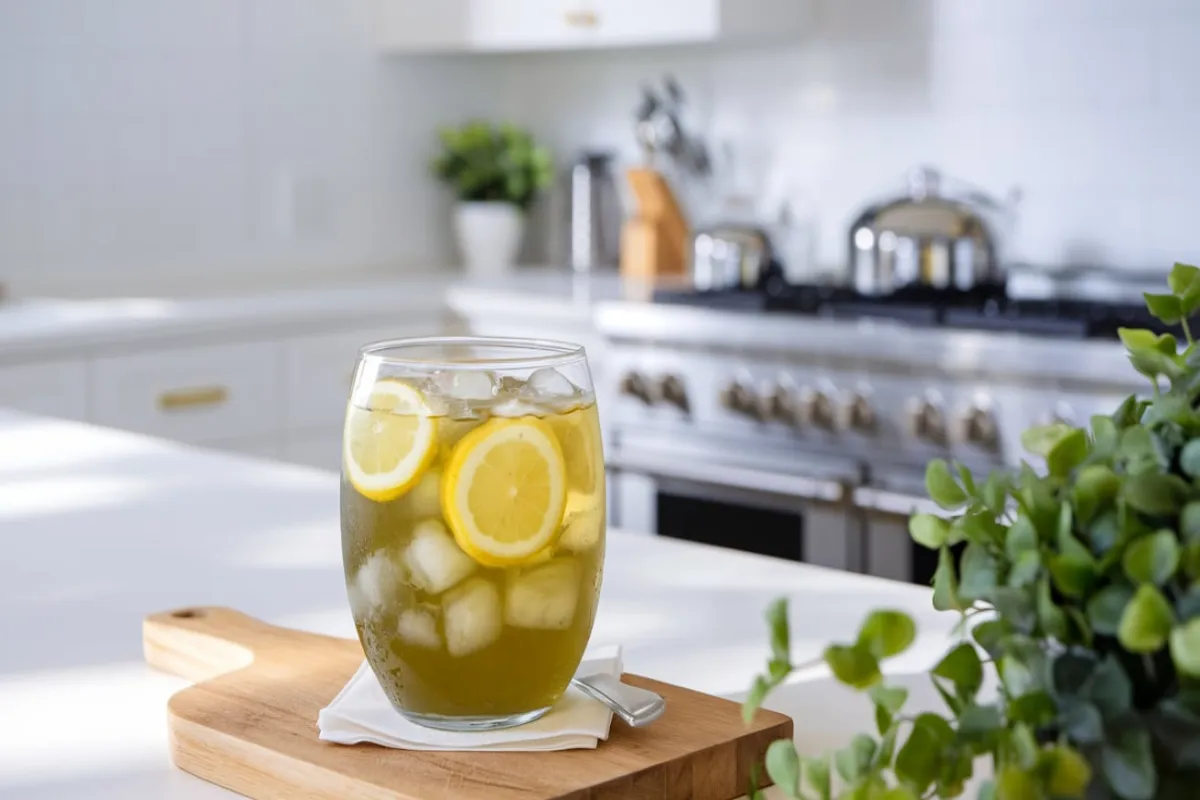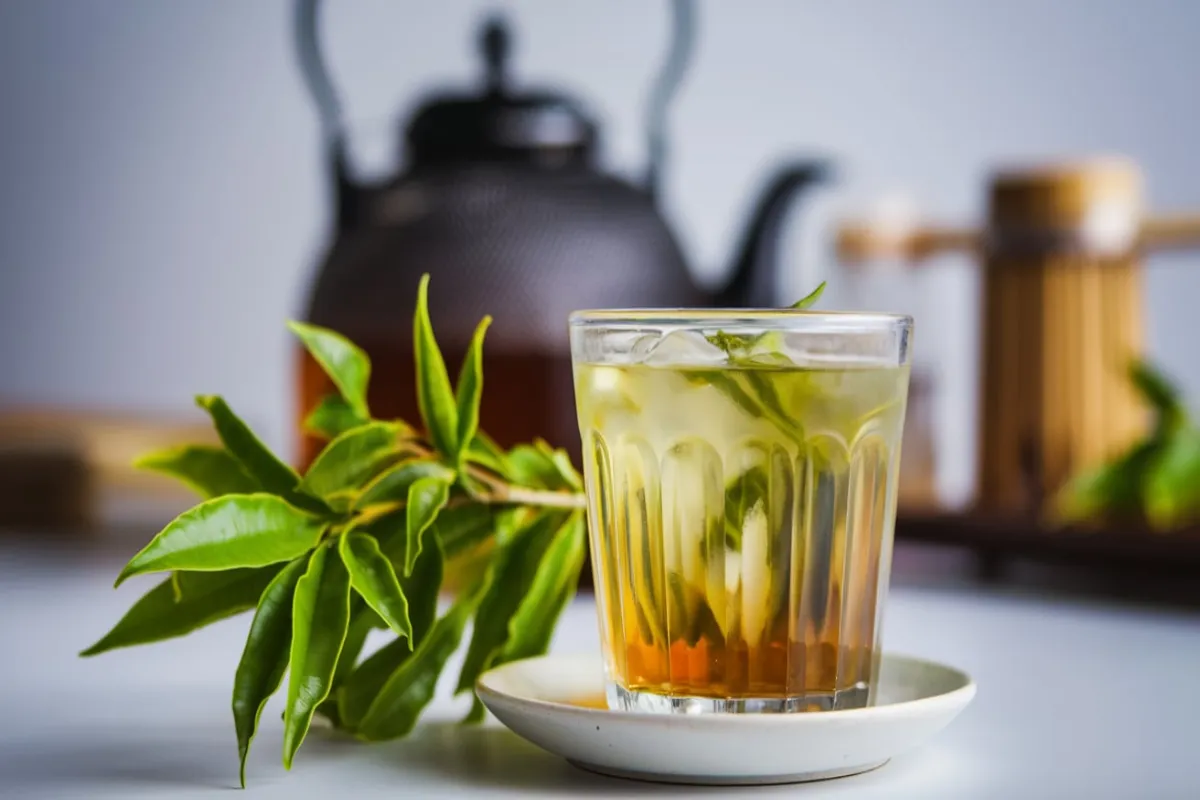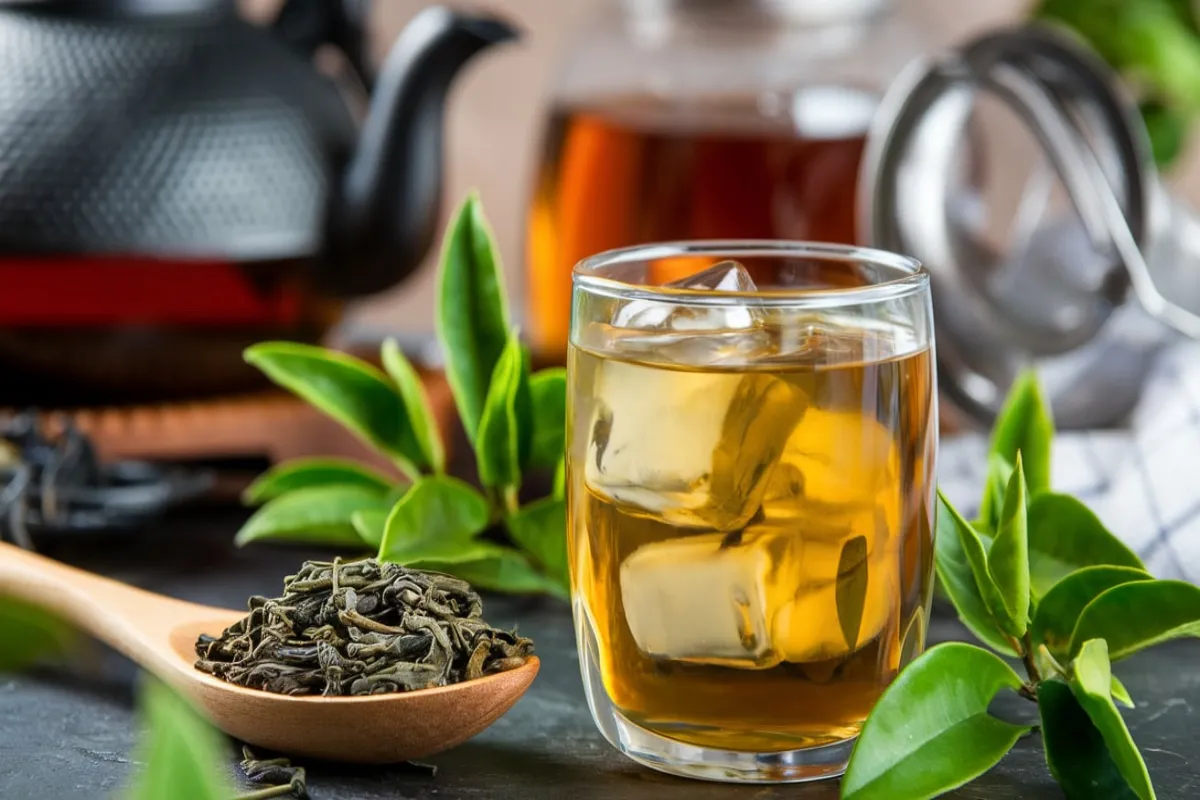Introduction
Green tea is a popular choice for those looking for a refreshing and healthy beverage. Whether enjoyed hot or cold, it’s known for its rich flavor and numerous health benefits. But when it comes to green tea iced tea, many people wonder about its caffeine content. Does green tea iced tea have caffeine? And if so, how much? This article will dive into the details, comparing it to other drinks, exploring its effects, and helping you decide if it’s the right beverage for your daily routine.
What is Green Tea Iced Tea?
Green tea iced tea is essentially green tea that has been brewed and then chilled, often served over ice with optional flavorings like lemon or mint. It’s a versatile drink that offers a cooling, hydrating option with the added benefits of green tea’s natural antioxidants. Whether you make it at home or buy it ready-made, green tea iced tea provides a delicious way to enjoy the classic taste of green tea in a cold, refreshing format.
Does Green Tea Iced Tea Contain Caffeine?
The short answer is yes, green tea iced tea does contain caffeine. Caffeine is a natural compound found in green tea leaves, and it remains present whether the tea is served hot or cold. However, the amount of caffeine in green tea is significantly lower than that in coffee or black tea, making it a milder option for those who want a gentle energy boost without the jitters.
Average Caffeine Content
An 8-ounce serving of green tea typically contains between 20 to 45 milligrams of caffeine. This is quite modest compared to coffee, which can have anywhere from 95 to 200 milligrams in the same serving size. The caffeine content in green tea iced tea will generally fall within this range, depending on how it’s prepared.
Factors Affecting Caffeine Levels
The caffeine content in green tea iced tea can vary based on several factors:
- Type of Green Tea: Different varieties of green tea, such as sencha, matcha, or gyokuro, have varying levels of caffeine. Matcha, for example, contains more caffeine because it uses whole powdered leaves.
- Brewing Time and Temperature: Longer steeping times and hotter water will extract more caffeine from the tea leaves. If you brew your tea briefly or with cooler water, it will contain less caffeine.
- Serving Size: Naturally, a larger serving of tea will contain more caffeine, so it’s important to consider how much you’re drinking.

Store-Bought vs. Homemade Green Tea Iced Tea
The caffeine content in green tea iced tea can also differ depending on whether it’s homemade or store-bought.
- Store-Bought Iced Tea: Many commercially available green tea iced teas list their caffeine content on the label. These drinks usually contain between 15 to 30 milligrams of caffeine per 8-ounce serving. However, this can vary by brand and preparation method.
- Homemade Iced Tea: When you make green tea iced tea at home, you have full control over the brewing process. This allows you to adjust the caffeine content to suit your preferences. For a lighter caffeine load, steep the tea for a shorter time or use slightly cooler water.
How Does Green Tea Iced Tea Compare to Other Beverages?
If you’re trying to monitor your caffeine intake, it’s helpful to compare green tea iced tea with other popular drinks:
- Coffee: With 95 to 200 milligrams of caffeine per 8-ounce cup, coffee has significantly more caffeine than green tea iced tea.
- Black Tea Iced Tea: Black tea contains more caffeine than green tea, averaging 40 to 70 milligrams per 8-ounce serving. This makes black tea iced tea stronger in terms of caffeine content.
- Soft Drinks: A typical 12-ounce can of cola contains about 30 to 40 milligrams of caffeine, which is comparable to green tea iced tea, though slightly higher.
- Energy Drinks: These can vary widely, with some containing 80 to 300 milligrams of caffeine per serving. They’re much stronger than green tea iced tea.
Overall, green tea iced tea offers a moderate caffeine option, providing enough to keep you alert without overwhelming your system.
The Effects of Caffeine in Green Tea Iced Tea
Benefits of Caffeine
When consumed in moderate amounts, caffeine can offer several benefits:
- Enhanced Alertness: Caffeine acts as a stimulant, helping you stay awake and alert, which can be especially useful during the afternoon slump.
- Improved Focus: Caffeine improves concentration, making it easier to tackle tasks that require sustained mental effort.
- Boosted Physical Performance: By mobilizing fatty acids, caffeine can enhance physical performance, providing more energy for workouts or daily activities.
Potential Downsides
While caffeine has its perks, it’s also important to be mindful of potential drawbacks:
- Sleep Disruption: Consuming too much caffeine, especially later in the day, can interfere with your sleep. If you’re sensitive to caffeine, consider avoiding green tea iced tea in the evening.
- Increased Anxiety: Some people are more sensitive to caffeine and may experience jitters or increased anxiety, even from moderate amounts.
- Caffeine Dependency: Regular caffeine consumption can lead to dependency, where your body relies on it for daily functioning, leading to withdrawal symptoms like headaches or irritability when you don’t get your usual dose.
Given that green tea iced tea contains relatively low levels of caffeine, it’s less likely to cause these issues compared to stronger caffeinated drinks like coffee. However, everyone’s tolerance is different, so it’s important to listen to your body.

Should You Be Concerned About Caffeine?
For most people, the caffeine in green tea iced tea is not a cause for concern. However, certain groups should monitor their caffeine intake more closely:
- Pregnant and Nursing Women: It’s generally advised to limit caffeine intake to around 200 milligrams per day during pregnancy and breastfeeding, as excessive caffeine can affect the baby.
- Individuals with Anxiety or Sleep Disorders: If you struggle with anxiety or insomnia, even small amounts of caffeine can exacerbate these issues.
- People with Heart Conditions: Caffeine can raise heart rate and blood pressure, so those with certain heart conditions should be cautious with their intake.
For these individuals, decaffeinated green tea iced tea can be a great alternative, offering the same refreshing taste and health benefits without the caffeine.
Tips for Managing Caffeine in Green Tea Iced Tea
If you want to enjoy green tea iced tea while keeping your caffeine intake in check, here are some tips:
1. Brew It Lightly
To reduce caffeine, steep your tea for a shorter time, around 2-3 minutes, and use cooler water. This will result in a milder tea with less caffeine.
2. Try Decaffeinated Green Tea
Decaffeinated green tea offers a similar flavor profile with much less caffeine. It’s a good option if you’re particularly sensitive to caffeine or want to enjoy your tea later in the day.
3. Mix with Herbal Teas
Blending green tea with herbal teas can lower the overall caffeine content while adding new flavors. Herbal teas are naturally caffeine-free, making this a great way to enjoy a flavorful, low-caffeine iced tea.
Frequently Asked Questions
1. How much caffeine is in a typical serving of green tea iced tea?
An 8-ounce serving of green tea iced tea typically contains about 20 to 45 milligrams of caffeine. This amount can vary depending on the type of tea and how it’s brewed.
2. Is green tea iced tea a good alternative to coffee?
Yes, it’s a great alternative to coffee if you’re looking for a beverage with less caffeine. It offers a gentle energy boost without the strong effects of coffee.
3. Can I drink green tea iced tea in the evening?
If you’re sensitive to caffeine, it might be best to avoid green tea iced tea in the evening. However, decaffeinated green tea iced tea is a great option for a nighttime drink.
4. Does homemade green tea iced tea have the same caffeine content as store-bought?
The caffeine content in homemade green tea iced tea can vary based on how you brew it. Store-bought versions usually list their caffeine content on the label, which is typically consistent.
5. Are there any health benefits to drinking green tea iced tea?
Yes, green tea iced tea is rich in antioxidants, which can help protect your cells from damage. It’s also hydrating and can support overall health.
Conclusion
In summary, green tea iced tea does contain caffeine, but in moderate amounts that are significantly lower than coffee or black tea. This makes it a suitable choice for those who want a mild energy boost without the intensity of stronger caffeinated beverages. Whether you make it at home or buy it ready-made, green tea iced tea offers a refreshing way to enjoy the benefits of green tea. Just be mindful of your caffeine sensitivity and adjust your intake as needed to ensure it fits well into your daily routine.

